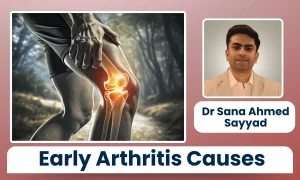Aromatherapy is an integrative modality utilizing essential oils as its primary therapeutic agents. Essential oils are highly concentrated extracts distilled from flowers, leaves, stems, barks roots and fruits of certain plants and have therapeutic benefits when taken internally and topically.
Oils such as lavender have numerous healing properties that can balance both body and mind, and can be inhaled via inhalation, massaged into skin layers or added to a steam bath for invigoration and restoration.
Antioxidants
Aromatherapy is an all-natural method for improving mental and physical well-being by using essential oils derived from flowers, barks, leaves, stems, roots or fruits of certain plants.
Aromatic substances, known as fragrances, are invisible yet aromatic compounds with unique scents that when inhaled are sent through olfactory nerves in the nose to the brain and stimulate specific areas of limbic system that produce emotional reactions.
Subcutaneous administration of essential oils can be accomplished either through relaxing massage therapy or direct skin contact, although for best results always dilute them with a carrier oil beforehand.
Antispasmodic
Essential oils are concentrated plant extracts containing volatile aromatic compounds responsible for giving plants their unique scent, when properly diluted in carrier oils they have many therapeutic applications.
Antispasmodic essential oils can help soothe muscle spasms, reduce stomach upset and alleviate respiratory ailments. Hot or cold compresses may be used on them or added as aromatic bath oils for additional benefits.
Antispasmodic oils work by alerting the brain to send out signals to relax muscles, providing instantaneous relief from pain, anxiety and depression in those suffering from stress-related mood disorders.
Analgesic
Aromatherapy can be an effective, non-medicinal way to improve your quality of life and promote an overall balanced state between mind, body, and spirit. Consult with your healthcare provider on how essential oils can complement and boost your healthy lifestyle regimen.
Essential oils are concentrated plant extracts containing volatile aromatic compounds, used for inhalation and topical application to promote healing. When selecting essential oils to purchase, make sure their bottle specifies their purity (no chemicals); fragrance/perfume oils may only contain small amounts of pure oil combined with chemicals.
Detoxifying
If you visit an alternative health magazine or wellness spa’s website, you are sure to come across various detoxifying treatments ranging from foot baths and FAR infrared saunas to cleansing diets and aromatherapy massage. As our bodies accumulate toxins over time, regular detoxification may be required.
Essential oils are natural plant extracts with the power to stimulate our olfactory nerves and influence the amygdala in our brain, an area associated with memory, emotion and alertness. Furthermore, essential oils have antibacterial, antiviral and anti-fungal properties; making them safer and more effective alternatives than conventional medicine.
Mood-lifting
Mint oil is an all-natural mood enhancer with stimulating properties to increase concentration and mental clarity, helping increase focus while soothing anxiety, stress and fatigue. It may even aid with headache relief!
Clove essential oil is widely known for its stimulating and invigorating effects in aromatherapy, helping to energise both mind and body to overcome fatigue, drowsiness and lack of motivation. It may even help with weight loss!
Inhalation and topical application are the safest ways to use essential oils. You can do this with an aromatherapy diffuser or personal inhaler, floating essential oils on hot water, massage roll-ons or massage blends containing diluted essential oils into the skin, etc.
Pain-relieving
Essential oils are natural substances derived from plants’ flowers, leaves, bark and stems and extracted into essential oils for their many uses in holistic healing treatments such as aromatherapy.
Essential oil inhalation promotes emotional wellness and may ease symptoms associated with medically diagnosed illness. Furthermore, essential oil inhalation enhances job performance by decreasing stress levels while simultaneously increasing alertness and creativity on the job site.
Essential oils can be inhaled directly from their bottles or mixed with carrier oils like olive or coconut to create room sprays, body spritzers or massage oils for use directly onto skin. Never place undiluted essential oils directly onto your skin!
Relaxing
Essential oils offer many therapeutic properties. They can help improve sleep quality, calm anxiety and reduce headache and menstrual cramp pain.
Essential oil inhalation activates our olfactory system and triggers limbic and hypothalamus parts of our brain that control emotions – for instance, inhaling chamomile’s soothing aroma can help ease low moods or feelings of isolation.
Use a diffuser, add some drops to a hot bath or directly apply diluted oils directly to pressure points like your forehead or wrists to enhance wellness activities like massage therapy or meditation. These techniques can also be combined with other wellness activities like massage therapy and mindfulness meditation for an additional boost.







More Stories
Hospital-at-Home: How Remote Tech is Bringing Healing to Your Living Room
Psychedelic-assisted Therapy Protocols: A New Blueprint for Healing
Environmental Medicine and Detoxification: Your Body’s Guide to Modern Living